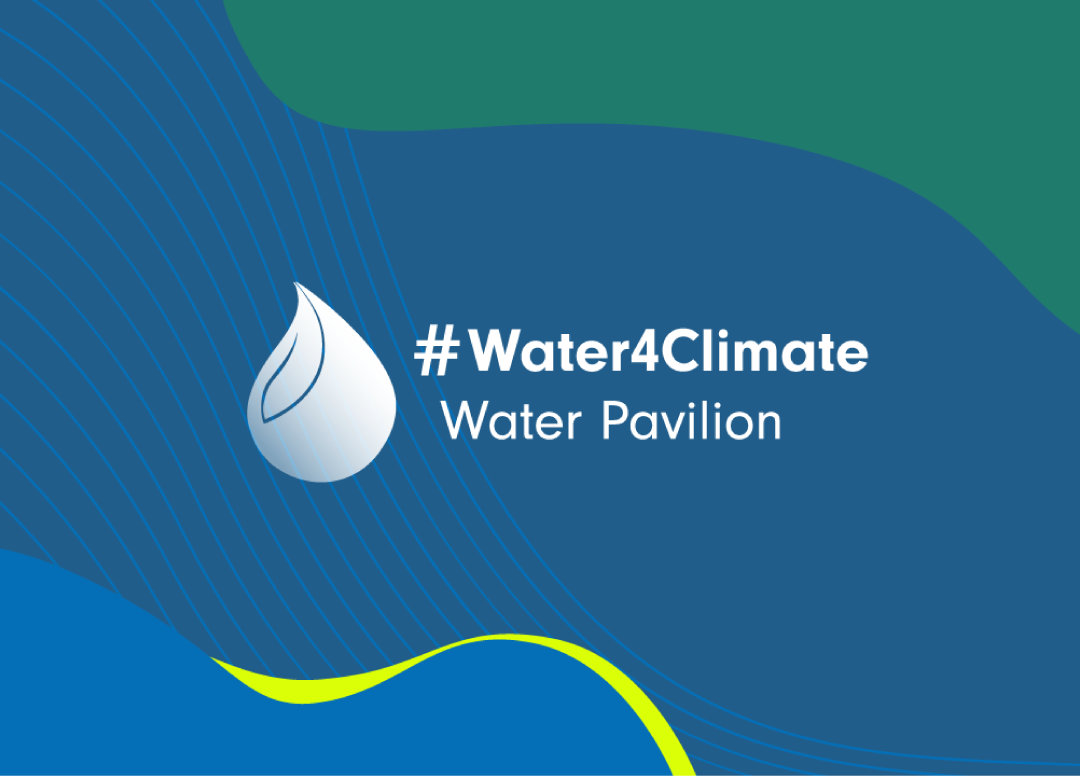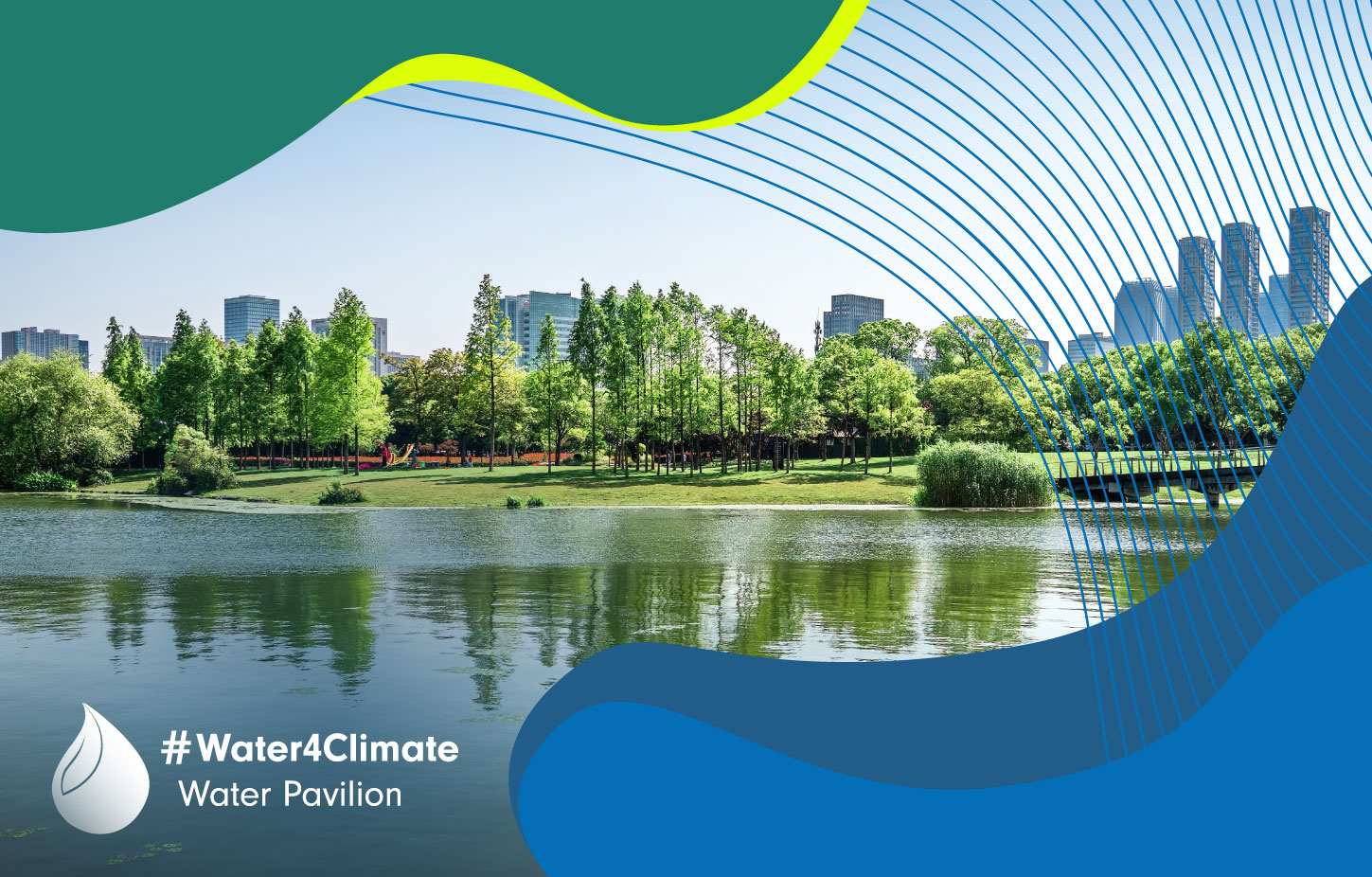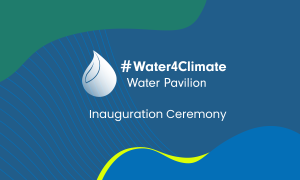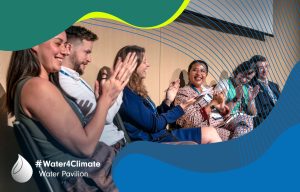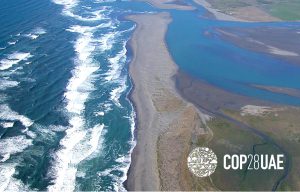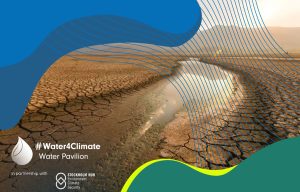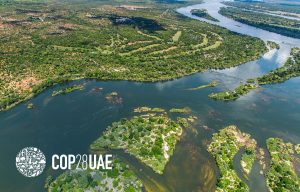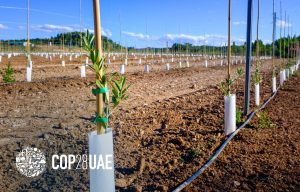Overcoming obstacles and watering the plans: High-Level roundtable on National Climate Plans
What are the barriers to integrating water into national climate plans? This session will provide a space for in-depth discussion of obstacles and solutions relating to costing, financing, stakeholder engagement, and implementation.
The discussion will highlight experiences and success stories that can assist stakeholders in shaping messaging about water as a solution to effective cross-sectoral approaches in climate plans, including water, sanitation, food, nature and energy systems.
This event will identify answers that can facilitate action, drawing on the expertise of attendees and speakers.
Location: COP28 Blue Zone, Water for Climate Pavilion, Workshop space
Speakers:
- H.E. Mr Tunji Bello, Commissioner, Ministry of Environment and Water Resources, Lagos
- Ms Lovakanto Ravelomanana, Coordinator of the National Office for Climate Change and REDD+, Ministry of Environment and Sustainable Development, Madagascar
- Ms Helinoro Diamondra Razaivaovololoniaina, General Secretary, Ministry of WASH, Madagascar
- Ms Carolina Fuentes, Director of Division of Country Programming, GCF
- Mr Pablo Vieira, Global Director, NDC Partnership Support Unit
- Ms Sonja Koeppel, Secretary, Water Convention, UNECE
- Mr Shohail Bin Saifullah, Country Coordinator, RWA Bangladesh
- Ms Ruth Mathews, Senior Manager, SIWI and Coordinator, Action Platform for Source-to-Sea Management
- UNDP
Background
The objective of this session is to address the remaining challenges to inclusion of water into Nationally Determined Contributions (NDCs) and National Adaptation Plans (NAPs), to identify solutions that can facilitate action.
While there are examples of countries including water in their NDCs and NAPs, policy makers still experience challenges with successfully integrating water into climate policy planning and implementation. This roundtable will gather actors from across the water community, geographic locations and professions to address the remaining challenges and suggest solutions.
The discussion will focus on financing and costing. It will address barriers to financing “natural infrastructure solutions” and tackle questions such as why financing water in NDCs and NAPs is a good investment, how funds and countries can work together to unlock the financing and maximise its potential, and lessons learned in this regard.
The roundtable will address how processes can facilitate meaningful stakeholder engagement, where the voices of women, youth, and other often marginalised communities are respected and amplified.
In addition, speakers will share success stories and key takeaways on how to work in a cross-sectoral way across administrative levels and transboundary to plan and implement water-integrated climate plans. This includes digging deeper into the technicalities of watering NDCs and NAPs and for instance highlighting the needs in terms of data gathering and analysis as well as holistic assessments of water usage in agriculture, energy and other sectors. It will call attention to the mutual benefits of providing climate-resilient water sanitation infrastructure and services, including safe wastewater management, and the protection and management of surface and groundwater resources. Stressing the mentioned cross-sectoral connections will facilitate understanding of the linkages between the Paris Agreement and other conventions.
More events on SIWI @COP28
In partnership with:

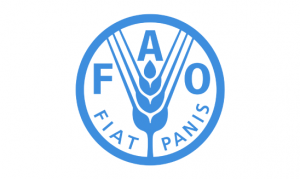
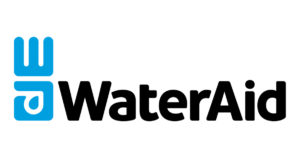
Water for Climate Pavilion
Check out the full schedule of sessions and discussions at the Water for Climate Pavilion, led by SIWI, in partnership with 60+ organizations.
See the event schedule